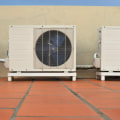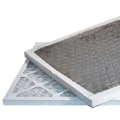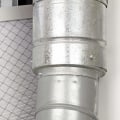In general, filters with higher MERV ratings capture higher percentages of particulate matter as well as smaller particles. MERV-13 is considered to be the ideal rating for most HVAC systems. However, if the rating is too high, it can cause the system to work harder than necessary and leave it vulnerable to damage. Additionally, there may not be enough air velocity to reach all parts of the house, resulting in temperature inconsistencies.
The main risk of using high-efficiency air filters is that they are not designed for long-term use. If you are aware of when to change your filters, you should not experience any issues with your HVAC system. The higher the MERV rating, the smaller the particles that will be removed from the air. ASHRAE is now encouraging homeowners to switch to MERV-13 filters as a way to provide cleaner air in non-sanitary facilities.
It is important to note that as filtration efficiency increases, so does the resistance to air flow. This means that if you have a low-capacity air conditioner, it may not be able to handle high MERV filters without an in-line booster fan. When it comes to masks, vacuum bags are not recommended because they contain fiberglass which can be dangerous when inhaled. However, MERV air filters are made of polyester and cotton and should be safe for use in masks.
The goal of using a MERV 12 filter or higher is to improve indoor air quality (IAQ) for those with allergies, asthma, COPD, etc. As an HVAC professional with over 40 years of experience, I have seen many systems destroyed by the use of highly restrictive high MERV filters. Therefore, it is important to consider this before making a decision about which filter to use. Air filters that are MERV 13 and above are recommended for those who prioritize air quality and may have to handle asthma, severe allergies and other similar circumstances.






